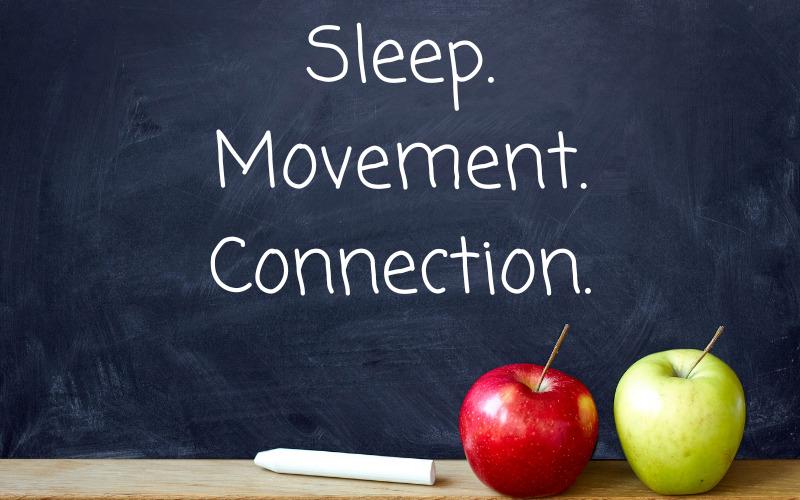Parent:
“How was your day?” “How are you doing?” “What do you think about…?” Do you want to…?”
Teen:
“Sure”, “Fine”, “I don’t know” “Huh?”, silent shrug.
This aspect of parenting teens can be terribly frustrating. So how do we often deal with our frustration? Let it go until we can’t any more then… yell, threaten, punish or anything else to get their attention?
It’s important to prioritize conversations that promote reflection, empathy and thoughtfulness in addition to natural consequences when behaviors fall short of expectations. This is much more effective long term. Punitive punishments made out of anger with little or no discussion result in more compliance short term but come at a significant cost long term. Kids raised in this environment often become compliant but shut down and/or sneaky and subversive.
I understand your dilemma. You may be thinking, “I agree and want to work on having conversations but my teen won’t talk or participate” It’s true that most teens struggle with this, but that’s a problem that we need to address.
The first step in helping your teen be a better communicator with you is to figure out what’s behind the dismissive or avoidant behavior. This will put you in a better position to help them get better at engaging in the kind of thoughtful and honest conversations that will be necessary for them to be happy and successful over time.
Below are 8 reasons teens don’t open up with their parents along with suggestions to help them get better.
1. They really don’t know what they think or feel. This is common for kids who don’t have experience reflecting or talking about what they think. These teens often are really good at following rules. They tend to be more focused on how others feel and think at the expense of their own self awareness.
How you can help: Ask for their opinions more often, slow down and give them more time. Empathize out loud with statements like “I wonder if you…”, “If I were in your shoes I’d be feeling…” Patience is key, they need extra time to process and reflect.
2. Their very sensitive nervous system is taking over. If you have two kids, it’s likely one of them is more sensitive than the other. You know if you have a highly sensitive kid because they’ve been that way since they were little. These teens often perceive neutral experiences as “threats” or “danger”. Despite being very intelligent, their responses are often much more primitive. So they shut down or overreact with anger because they’re flooded with adrenaline and cortisol, the hormones that get activated in fight or flight.
How you can help: Be extra mindful of your voice tone, body language and facial expression. Neutral will be experienced as hostile. Kind and calm non-verbal communication, including touch (at the right time), is extremely important for these kids. It goes without saying that if your nervous system is ramped up, give yourself a time out first.
3. You’re too predictable. Teens will often tell me that they know what you’re going to say before you say it. They buckle in for a lecture about their future and how they’re running out of time and they’re so capable, blah blah blah (their words not mine). They tune out.
How you can help: Focus less on getting through to them or teaching them and more on just hanging out via activities and showing interest in their world. Overtime they’ll trust you more, your credibility will go up and they’ll be much more open to your perspective. By now, they know how you feel and think about most things. Leverage other adults with values you share to talk to your teen about important things. This could be a counselor, family member, coach or any other adult your teen trusts.
4. They’re consumed with shame. A lot of teens have developed a habit of being really hard on themselves in response to their mistakes or negative attributes. Instead of doing something bad, they think they are bad. When we feel shame about something, we hide from that thing as much as possible. This typically manifests in lying, minimizing and/or avoiding difficult topics or decisions.
How you can help: Remind them repeatedly that while you’re disappointed or frustrated with their behavior, your love for them is unshakable. You likely have said this at one time or another, but it needs to be reiterated and modeled consistently.
Become more aware of the statements you make when you’re upset. Avoid comments that make them the problem like, “what’s wrong with you?”, “You’re so selfish”, or “you don’t care about anyone but yourself.” Statements like these focus on the person and not the behavior. This all but guarantees low self esteem and an unwillingness to be honest and open with you.
5. The timing is bad. Sometimes they just don’t want to talk now. Timing is important with teens and when they’re not into it they’re not into it. Teens are like cats while children are more like dogs. Children are excited to see you, want to play always and are generally obedient. Teens on the other hand need more control. They’re independent but still want to cuddle and be near you on their terms. If you haven’t mourned the puppy years, it’s not too late : )
How you can help: As you’ve probably already discovered, teens often are more open when they have an alternative object or activity to focus on. This is why being in the car can help because they don’t have to look at you. Before bed works because they’re more tired and their defenses are often down. Other opportunities might be at dinner or after a thought provoking movie or parent/teen workshop that you attended together ; ).
6. They think they’ll “just get in trouble.” I hear this so often. If your teen has experienced you taking away their phone or grounding them, the lesson they likely learned is that they need to get better at keeping their cards closer to their vest. If you’ve grounded or taken away their phone, you’re likely getting the short term compliance you seek. However it’s likely coming at the expense of pent up anger and the missed opportunity for your teen to learn and reflect. You want your teen to develop their own internal moral compass and enough awareness to identify what behaviors contribute to their happiness and well-being and which behaviors undermine those goals.
How you can help: Work towards changing the culture from “being in trouble” to learning, reflecting and connecting. This happens by staying calm and remaining curious about their experience and what they’re thinking. Then describing your concerns and reiterating your expectations followed by a natural consequence and/or repair (making amends) to whomever may have been harmed. All this should come from a place of love, caring and concern not anger, mistrust and skepticism. If your teen’s behavior is really off the rails then you’re going to need some professional support.
7. They don’t want to let you down. If you have a good relationship with your teen they may be hard on themselves and worry about letting you down or disappointing you.
How you can help: Teach them that having negative emotions like disappointment, sadness or frustration is a natural and normal experience that comes from caring deeply about someone or something. Also, toss the bumper stickers that say how proud you are of your Eagle Scout or honor roll student. Teens will sometimes tell me, “My parents love to talk about how good I’m doing, so there’s no way I’m going to tell them that actually I’m not doing very well.” While it’s important to focus on strengths, it’s also essential to make room for having a hard time too.
8. They don’t want to cause any more stress. If you’re unhappy or overly stressed, your teen knows it. As a result, they’re unlikely to open up with you because they know better than to put more on your already full plate. Not fighting in front of your kids may be better or it may worse. Chronic tension causes a lot of anxiety and fear in kids.
How you can help.
There’s no real tip here other than the obvious. If your marriage is bad, work on it or figure out how to end it in a positive way. Continue to work hard on your own mental health issues and/or stress. The best gift you can give your child is a less stressed and happier you.
I know that one of the hardest parts of parenting teens is getting them to open up. It’s true that some of this has to do with their developmental stage. They need to experience autonomy and independence from you. Not just physically but also mentally as well. Your teen needs to feel like they’re making decisions and thinking things that you aren’t.
At the same time, the best way to teach your teen 21st century skills such as collaboration, empathy, and expressing needs and wants in an effective way is through mutual discussion and problem solving. It’s important to reflect on the ways that we unintentionally place barriers in front of our kids’ ability to be open and honest with us.
While this is certainly easier said than done, I hope you’d agree that the rewards that come with, and for, a teen more able to discuss and exchange ideas in a calm and thoughtful way is well worth the effort.






